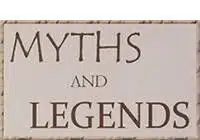
Reading Skills get sharpened by unseen passage reading comprehension test. We provide reading comprehension exercises with answers. Go through reading comprehension passages with multiple choice questions will help you in reading comprehension questions. We provide simple comprehension passages with questions and answers which have value based questions. These unseen comprehension passages are really helpful to all. Go through this reading comprehension pdf and reading passage worksheets to learn English.
Myths and Stories
Read the passages given below and answer the questions that follow them:
Most of the myths and stories are heroic in conception and teach adherence to truth and the pledged word, whatever the consequences, faithfulness unto death and even beyond, courage, good works and sacrifice for the common good. Sometimes the story is pure myth, or else it is a mixture of fact and myth, an exaggerated account of some incident that tradition preserved. Facts and fiction are so interwoven together as to be inseparable, and this amalgam becomes an imagined history, which may not tell us exactly what happened but does tell us something that is equally important — what people believed had taken place, what they thought their heroic ancestors were capable of, and what ideals inspired them. So, whether fact or fiction, it became a living element in their lives, ever pulling them up from the drudgery and ugliness of their everyday existence to higher realms, ever pointing towards the path of endeavour and right living, even though the ideal might be far off and difficult to reach.
Goethe is reported to have condemned those who said that the old Roman stories of heroism, of Lucretia and others, were spurious and false. Anything, he said, that was essentially false and spurious could only be absurd and unfruitful and never beautiful and inspiring, and that ‘if the Romans were great enough to invent things like that, we at least should be great enough to believe them’.
Thus, this imagined history, a mixture of fact and fiction, or sometimes only fiction, becomes symbolically true and tells us of the minds and hearts and purposes of the people of the particular epoch. It is true also in the sense that it becomes the basis for thought and action, for future history
Word-Meaning: Myths- old imaginary stories मिथक , पोरिरिक कथाये Conception— understanding, धारडा Adherence— following, अपनाना Consequence— result, परीडाम Exaggerated— far-fetched, बड़ा – चड़ा के Drudgery— uninteresting jobs,अरुचिकर कार्य Endeavour— effon,प्रयत्न Condemned— criticised and blamed, आलोचना की Spurious— false,झूठे Epoch- age, काल
Questions
1.What do all our myths and stories teach us?
2. What are inseparable in our myths?
3. Whom did Goethe condemn?
4. What is symbolically true about the imagined history?
5. Find a word from the passage which means ‘ridiculous’.
Answers
1.All our myths and stories teach us to follow the truth and respect the pledged word.
2. Facts and fiction are inseparable in our myths.
3. Goethe condemned those who believed that old Roman stories were false and spurious.
4. It is symbolically true about the imagined history that it may be a mixture of fact and fiction.
5. Absurd.